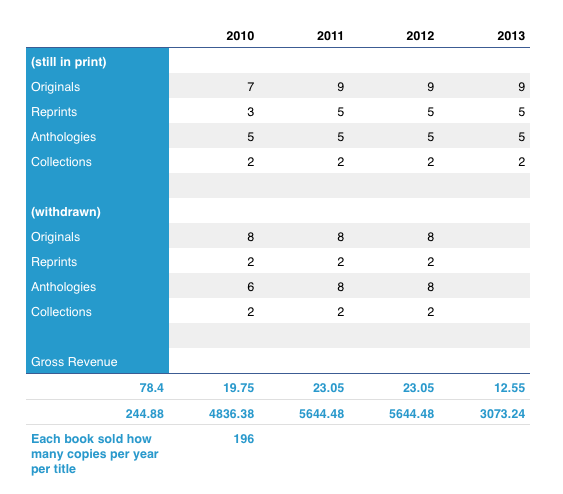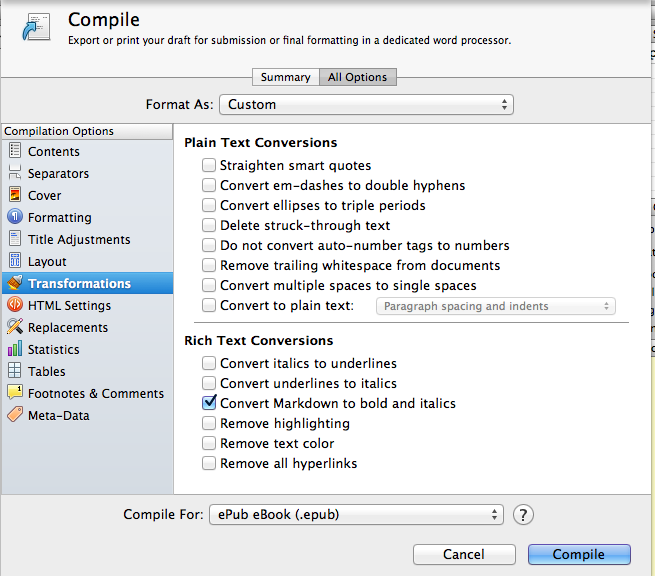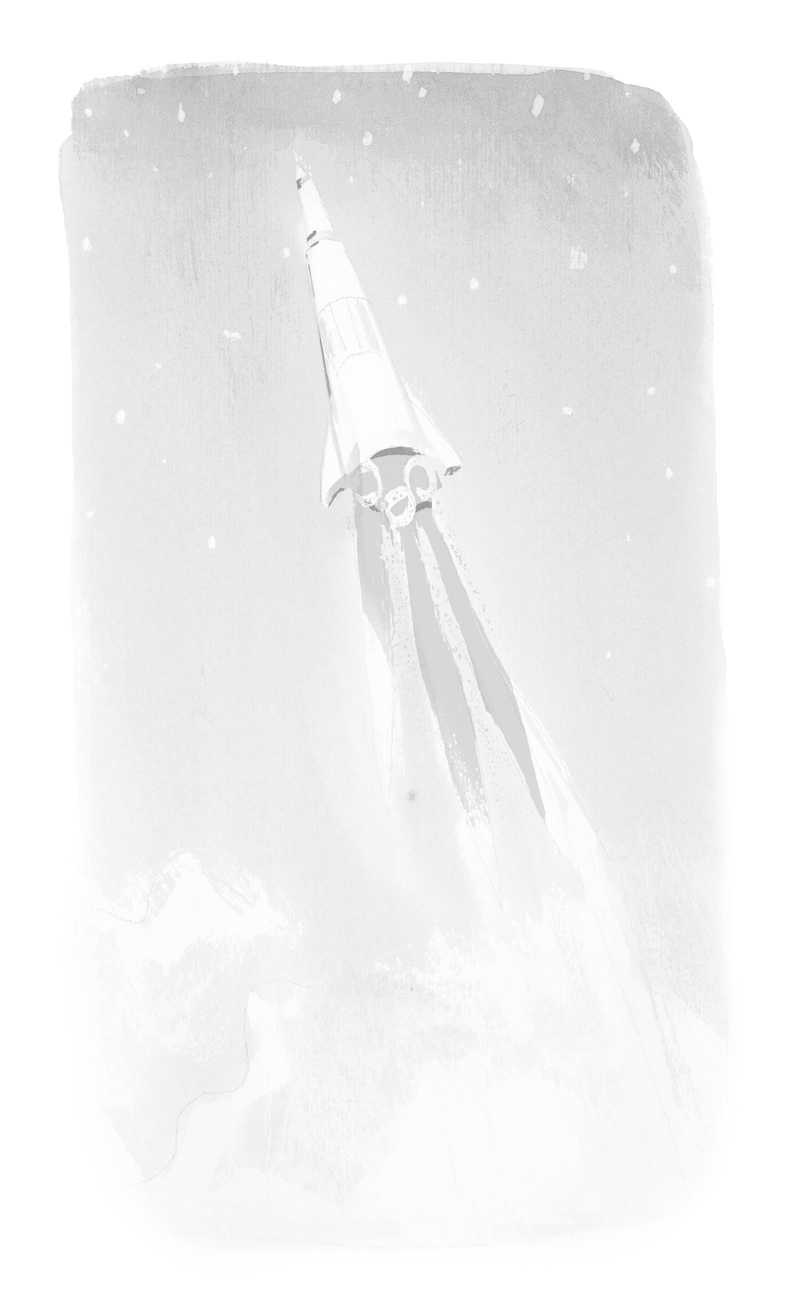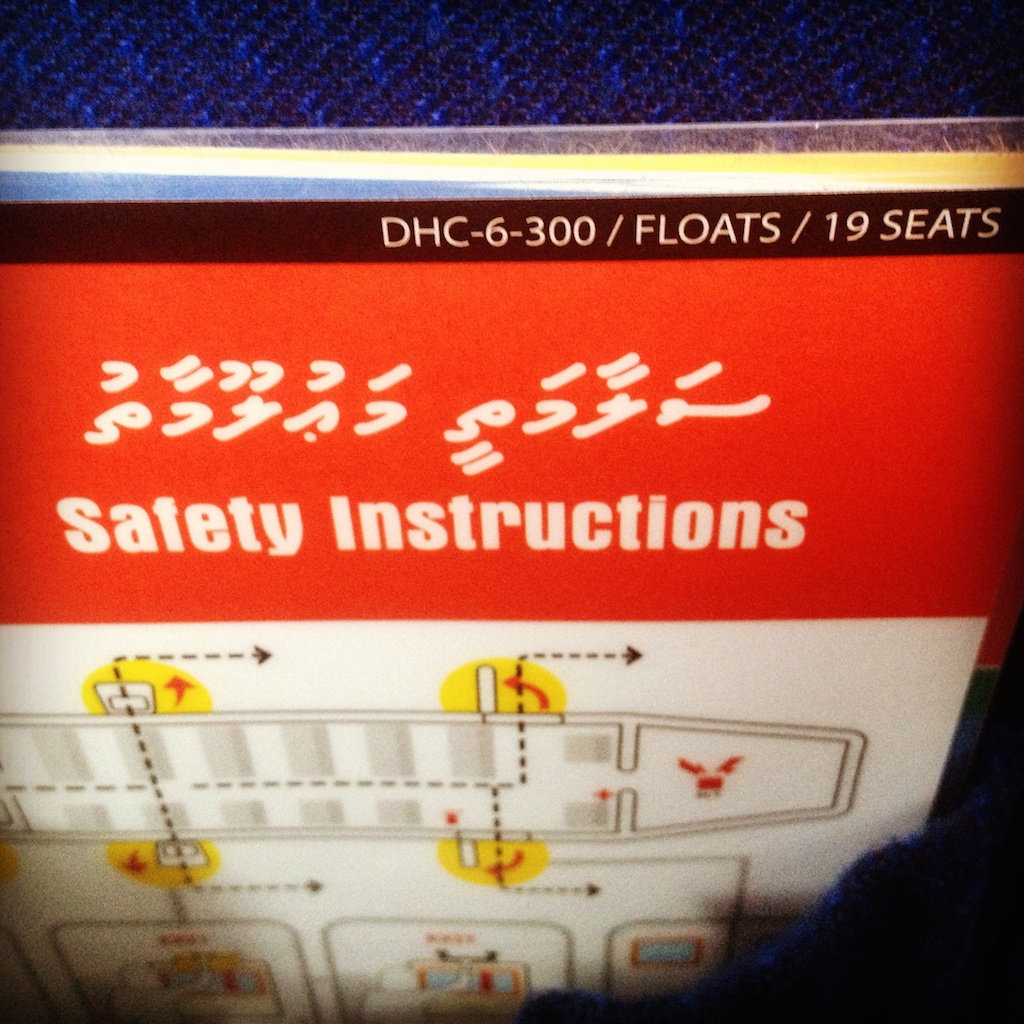More Thoughts on Malaysian MH 370
15 March 2014
Previously: my crackpot theory.
When I said, “it’s sunk,” my intuition was based on the fact that military sites had detected it, then recanted their statement. That said to me that it could have been a friendly fire episode where people hadn’t gotten their stories straight. Except, we’d have detected pieces by now, I’m pretty sure.
My second thought was hijacking, assuming the military disbelieved their own systems because they weren’t detecting quite what they expected.
So here are some more relevant details that are apparently ahead of the news cycle.
This is one of those times where I wish I’d actually traveled more of the Indian Ocean. I was supposed to go to the Seychelles last year—had it booked, in fact—but my stand-up boss nixed it, though it had been booked for almost 11 months.
Several people have asked if the pilot’s home simulator was common. I knew (until his death) a former commercial pilot, and he’d told me they were common. The photos I’ve seen in the news very much like my late friend’s setup.
Here are a few tweets from a fairly well-informed person, @flyingwithfish:
I think the US Gov’t has an idea of where #MH370 is given that DHS told it flew about 3,675 miles on Thursday.
The 3,675 miles flown DHS gave me in Thurs lines up with Malaysia’s PM saying it flew 7.5hrs on Friday.
So here’s that map with that range marked out (so you’re looking toward the bounding border of the circle):
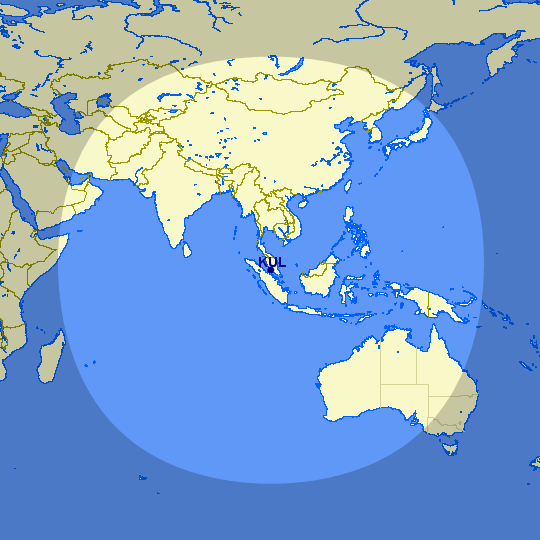
Let’s assume the little islands of the Indian Ocean aren’t of interest. So no Diego Garcia, Reunion, Mauritius, Seychelles, Comoros, Lakshadweep, Christmas Island, Cocos/Keeling, Maldives, Mayotte, Rodriguez, or Zil Elwannyen Sesel. Or Socotra or Madagascar or Andaman/Nicobar islands, which are bigger.
Let’s also assume that the flight path would not have to overfly anyone else’s airspace and that, based on the latest information would mean west of Kuala Lumpur.
So that leaves:
Africa: Somalia
Arabian peninsula: Yemen, Oman
Asia: Pakistan and Iran. Technically also India, but I find that highly unlikely.
If the plane had turned north from the Andamans, add Myanmar and Thailand.
But I don’t think so.
Some of what flyingwithfish has tweeted:
DHS source says “It is unlikely #MH370 headed south and its exact direction of travel remains unknown to the RMAF. We’re looking elsewhere.”
Based on what sources have told me, I have been saying state backed actions for a week in regard to #MH370
Remember that value is in the eye of the beholder, we may not be looking for something with a lot of hard currency as a motive
Why steal #MH370? My theory, which could be wrong, is grab who is on board or evade customs & other issues of what’s in the belly
There is proof 20 managing engineers involved with building US Defense Application semiconductors were on #MH370
Question asked: Is it possible for the aircraft to piggyback in another aircrafts shadow to avoid radar? Answer: El Al did it with Entebbe
We even know #MH370 had 1000lbs of lithium batteries above the maximum allowed limit.
On the cargo (ULD = unit load device):
We don’t know what is on an unaccounted for ULD cargo position. It is unaccounted for. That is unheard of. #MH370
Another angle of cargo ULDs being loaded onto a 777-200/ER, like #MH370, you can’t dump the cargo easily. pic.twitter.com/U55UgzTUus
You cannot open a cargo door on a commercial airliner in flight. It opens from the outside
Here is my issue with the radar arc image for #MH370, given an estimated fly time & distance flown, why does it avoid a likely location?
There are a number of possible locations, based on the info I have & talking to experts yesterday I gusstimate IFN IFN is Isfahan.
Bloomberg piece about Iran, Malaysia, US:
Iran increasingly is obtaining U.S. military equipment and technology through shipments to Malaysian middlemen that illegally circumvent trade restrictions, according to American officials and analysts.
What they wanted? Engineers and managers who knew US defense plans:
Why? They know how to build US Defense Application technology and there were 20 on one plane, which is stupid
I’ve missed a lot of his tweets, but let’s summarize the above (and a couple of other things):
- The pilot was involved. It’s not known whether it was the older, more experienced one or the younger one, but the younger one was engaged with a wedding coming up.
- Cargo doors can’t be opened from inside the plane.
- There was a cargo container with unknown goods inside. This is unheard of.
- Isfahan airport is the Fish’s guess of location they’re going. If so, there’s state involvement from Iran.
- The signature of the plane could be covered by shadowing another plane, which would require state involvement also.
- There were 20 defense engineers who knew significant details of recent/future US military defense technologies on board.
- I believe the aircraft was flown, landed, off loaded of what they wanted, plane & collateral liabilities are eliminated. Gulp.
Well @ToTheWinslow, since you ask. On a scale of 1-to-This-Is-Totally-Bat$#!+-Crazy, I would score the #MH370 story at 997.
I dunno, I have at least enough plots for half a dozen spy thrillers now….
Edited to add the next three paragraphs…
Jim Wright has some really great commentary over on FB
Because the ocean is a damned big place, vaster than you can imagine unless you’ve sailed across it (and, because I know you people, yes, I HAVE indeed sailed this part of the world, it’s vast, and complicated and dangerous). And even when you know exactly, and I mean EXACTLY, where to look, it’s still extremely difficult to find scattered bits of airplane or, to be blunt, scattered bits of people in the water. As a navy sailor, I’ve spent days searching for lost aircraft and airmen, and even if you think you know where the bird went down, the winds and the currents can spread the debris across hundreds or even thousands of miles of ocean in fairly short order. No machine, no computer, can search this volume, you have to put human eyeballs on every inch of the search area.
Having recently spent a couple of weeks in some of the remoter ocean parts of the world, this. Three days of no satellite, something I never expected, with the realization that we were really on a very tiny ship (about 800′, which isn’t actually that small) in a very, very large place.
And now for something that made me laugh so we end on a lighter note. Senior Afghan official on whether #MH370 flew over Afghanistan: “We do not have a radar. Go and ask the Americans.”
